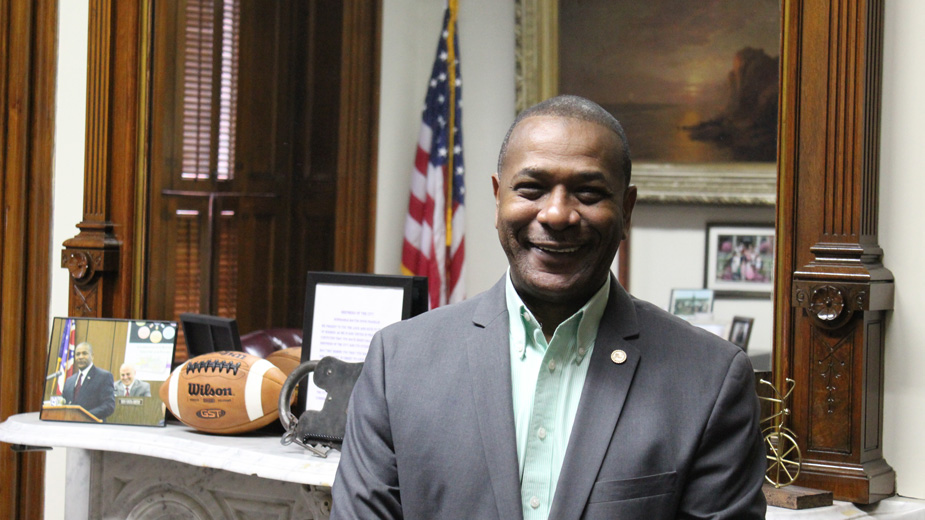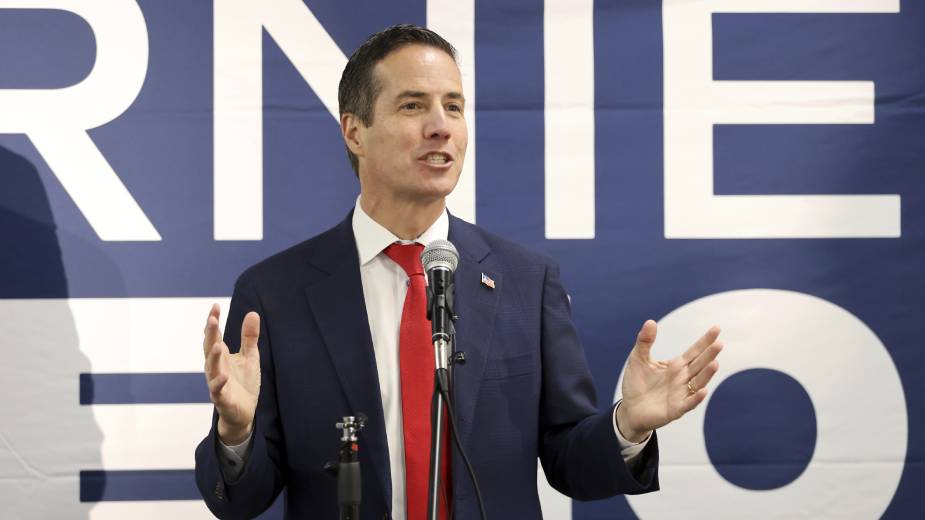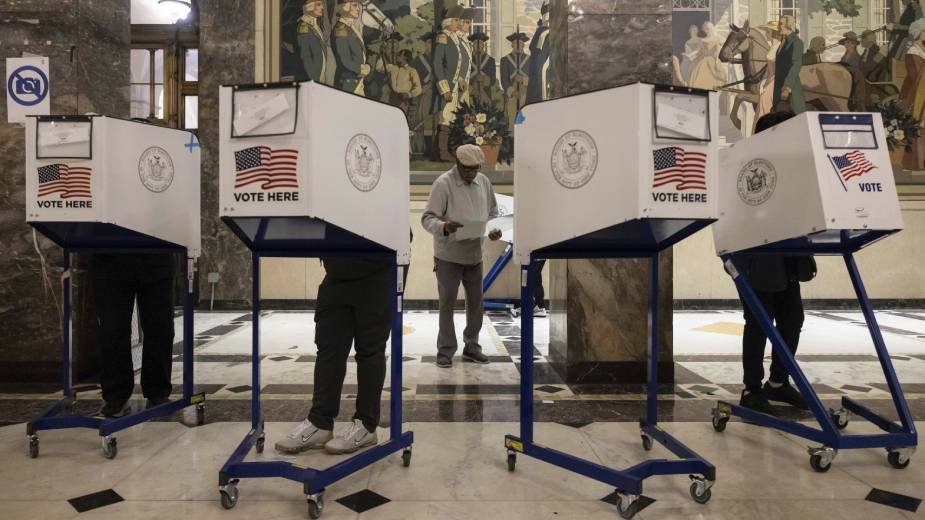Warren Mayor Creates Police and Community Trust Initiative
WARREN, Ohio – When Mayor Doug Franklin walked with nearly 1,000 protesters three weeks ago in the wake of George Floyd dying while in custody of police, he was adamant that leaders had to quickly act to create reform when it comes to racial disparities and injustice regarding police brutality and the Black community.
“We can’t lose this momentum. We have to take this energy and sit down and have honest dialogue and hard conversations,” he said.
He wasted little time. On Tuesday, Franklin announced the formation of the Police and Community Trust Initiative. The group’s purpose is to educate, communicate, understand the city’s past and present situations and develop a pathway forward, he said.
“My administration is committed to reinforcing trust between the Warren City Police Department and the community it serves,” Franklin said. “If we truly want to see change we must all do our part in fostering the conversation and actions needed.”
This group will include community activists, ministers, law enforcement and community leaders. He said the group will have input on police policies and the ability to make recommendations. Safety Service Director Eddie Colbert will be a part of the committee as well as some ranking command staff.
Franklin says he made a conscious decision not to include elected officials on the committee in order to avoid political influence. The committee is not a reaction to appease a trending climate change for reform in community policing and racial disparities, but rather, a thoughtful commitment to creating positive change, he said.
“This will be ongoing work because this type of type of work is never finished. I expect the initiate make policy recommendations, create initiatives and emphasize what needs to happen to move us forward,” Franklin said.
Admittedly concerned about possible disturbances resulting from the local protest that wound through Warren’s Downtown Square, he was relieved it didn’t happen, happy to see Warren police officers walking with protesters and inspired by 20-year-old Ty’Onna Powell, who organized the protest and has continued her advocacy efforts with more community activism. Powell is part of the initiative.
“It’s important that we listen to our young people, and if you look at what’s happening with this issue, there’s a lot of young people who are leading. Any meaningful change you’ll see many young people at the forefront. And this is no different, so we want to tap into that,” Franklin said. “We want to harness it in a positive way. Make them stakeholders.”
Powell says it feels amazing to be recognized and acknowledged as a young person who wants to create change. She believes making police and leaders accountable will create a new future for the city.
“Young people like me, we are the future. Leaders are going to eventually hand over the baton to us and it’s important to provide us with the right guidance and education that will allow us to form our own ideas and modernize them,” Powell said. “It will only get better from there and I think this can restore Warren to prominence.”
While Franklin cited a series of killings of unarmed black men and women have ignited calls for sweeping changes for racial injustice, he said Floyd’s death was the match that lit the powder keg.
But the city has been its own powder keg when it comes to police brutality. After a serious of violent arrests in 2003 and complaints of excessive force, the United State Department of Justice opened investigations when some arrests garnered national attention.
“For the last 17 years the Warren Police Department has been under a consent decree of the Department of Justice. I think we need to do a better job of communicating and explaining to the public how that has changed our department,” the mayor said. “We’ve probably overhauled every single policy in that department over those 17 years, specifically use of force policies, but also citizen complaint process and everything that follows under that umbrella. We’ve really changed as department as a result.”
In July 2019, Franklin said the DOJ released the consent decree from the department after completing reforms that were spelled out in a 2012 settlement.
The Department of Justice released a statement Jan. 13, 2012 stating it had resolved its excessive force investigation of the Warren Police Department through a settlement agreement. The Department of Justice found reasonable cause to believe that WPD engages in a pattern or practice of excessive force in violation of the Fourth Amendment of the U.S. Constitution and the Violent Crime Control and Law Enforcement Act of 1994, according to the release.
The settlement required Warren police and city officials to create and implement new use of force policies and protocols, systems to ensure that uses of force are documented and evaluated, systems to track citizen complaints and ensure they are investigated promptly, and officer training on conducting effective and constitutional policing.
The police department’s reputation is nearly as old as Powell, but she is all too familiar with it.
“I come from one of the toughest neighborhoods in the city. Every day we [African Americans] have that shadow over us because we live in fear of the Warren Police Department’s background where it’s a crime for you to even be Black. If you have a nice car, or you’ve been in the media, you’re being harassed as if they’re trying to bring out something demonstrative,” Powell said. “I’m still a little hesitant, but my hope is this panel can help us realize we don’t have to be afraid and everything open for public and as authentic as possible so the community can come to us and be honest in order to invoke some type of change.”
Franklin said about 85% of Warren’s officers have operated under mandates from the Department of Justice. “That’s all they know because attrition has hit that department,” Franklin said.
Another member of the Community Police Trust Initiative panel is Jennifer Roller, president of the Raymond John Wean Foundation, which has been working on initiatives around race disparities and inequities.
“One’s race shouldn’t determine how you fair in life. This is a good first step. I’m glad to be working on behalf of the mayor in partnership with community leaders and other stakeholders on this initiative,” Roller said. “It’s good to see some action around it.”
She believes leaders and residents are at a point of wanting to execute and implement change to make the community better for all.
“Systemic racism policies, practices and regulations were created to provide advantages for white people and the disadvantaged people,” she said. “These created system have been doing what they were designed to do. I hope to come out of this with strategies that have quantifiable benchmarks so we can measure what is working and what we need to pivot on.”
Members of Police and Community Trust Initiative:
Vince Peterson II – Former Law Enforcement
Annette McCoy – NAACP
Joe Walker – Clergyman
Thomas Conley – Urban League
Ty’Onna Powell – Youth Activist
Jennifer Roller – Wean Foundation Director
Todd Johnson – Clergyman
Dante Capers – Principal WGH
Lamar Freeman – Youth Activist
Stanley Elkins – Juvenile Prosecutor
Precious Ball – Jr. NAACP President
Copyright 2024 The Business Journal, Youngstown, Ohio.



